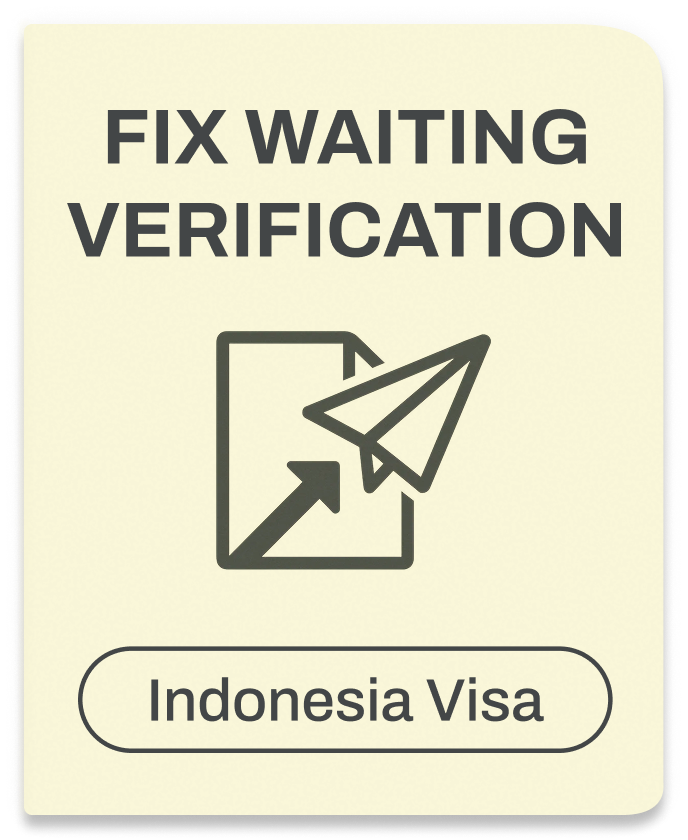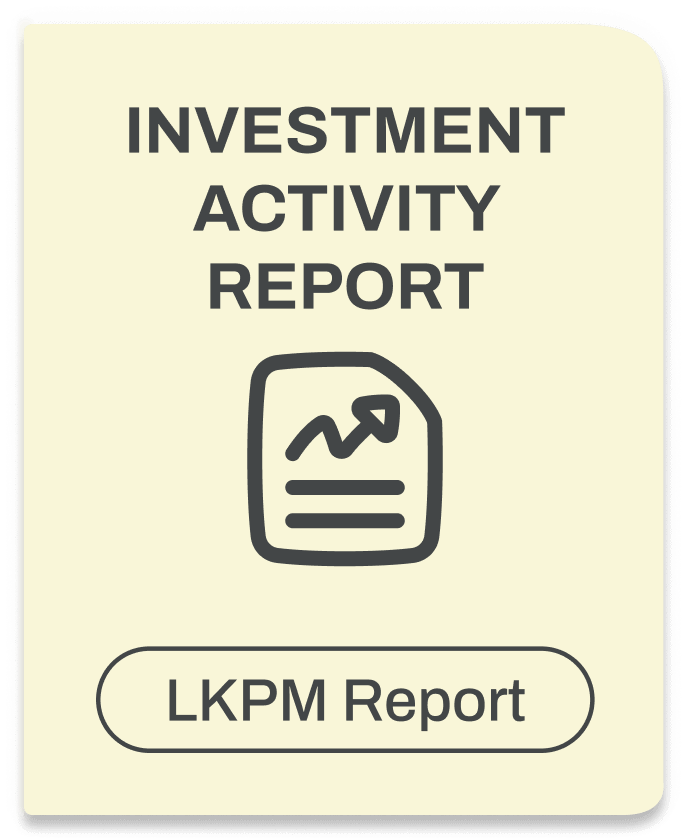Income Tax Indonesia 2025: What You Need to Know

Here’s what matters most if you’re living or working in Indonesia in 2025:
Who pays Indonesian tax? You’re a tax resident if you spend 183 days in Indonesia, live here, or plan to stay. Tax residents are considered domestic tax subjects and are taxed on worldwide income, while non-residents are only taxed on Indonesian source income. Residents pay tax on worldwide income. Non-residents only pay on Indonesian income.
Tax rates for individuals in 2025:
- Up to IDR 60 million: 5%
- IDR 60-250 million: 15%
- IDR 250 million-500 million: 25%
- IDR 500 million-5 billion: 30%
- Over IDR 5 billion: 35%
Quick example: If you earn IDR 300 million, you pay 5% on the first 60 million, 15% on the next 190 million, then 25% on the remaining 50 million. That’s IDR 37.5 million total tax, calculated using the progressive income tax rate.
Non-residents face a 20% withholding tax on Indonesian income, but tax treaties can reduce this rate.
Companies pay a 22% corporate tax, which is the standard corporate income tax rate for both resident and foreign companies’ worldwide income (19% for qualifying listed companies). Corporate taxpayers are subject to this income tax rate.
Key deadline: Individual tax returns due March 31st. File online at DJP Online.
Important change: If you’re a resident, your NIK (national ID number) is now your tax number, serving as your taxpayer identification number (NPWP).
Indonesian citizens and foreign nationals may be classified as tax residents depending on their center of vital interests and duration of stay. Both individual and corporate taxpayers must report all income earned in Indonesia. Individuals earning income in Indonesia are subject to tax obligations based on their residency status.
Are You a Tax Resident?
In Indonesia, you have to pay income tax if you are considered a tax resident or if you are a non‑resident who earns money from Indonesian sources. The main difference is how wide the tax net is.
Residents are taxed on all of their income from around the world, although certain foreign experts get a special four‑year break where only income from Indonesia is taxed. Non‑residents, on the other hand, are taxed only on income they make in Indonesia, and this usually comes through a flat withholding rate taken right out of their payments.
Are You a Tax Resident?
Indonesia applies clear rules to determine residency. You are considered a tax resident if you meet any of the following:
- Stay Test: Present in Indonesia for more than 183 days within any 12 months (partial days count as full days).
- Living Test: Reside in Indonesia, even without exceeding 183 days, for example, by having a home, family, or ongoing presence here.
- Intention Test: Present in Indonesia during a tax year, intending to remain. Indicators include holding a KITAS/KITAP, a local work contract, or relocating family.
- Foreign experts with specific skills may qualify for the 4-year territorial regime. This means for their first four years of residency, they are only taxed on Indonesia-sourced income, not worldwide income. Eligibility is regulated by the Ministry of Finance rules, and companies must register this arrangement through the Coretax system.
- Non-residents performing short-term work (e.g., consultants flying in for a project) will usually face a 20% withholding tax on gross payments (PPh 26), unless reduced by a tax treaty via an approved e-SKD.
When counting days in Indonesia, both the day you arrive and the day you leave count as full days toward the 183‑day rule. Even if you come and go several times, all those shorter trips add up across a 12‑month period. And don’t be fooled by your visa type—a tourist visa doesn’t protect you from being treated as a tax resident if you stay long enough.
Foreign Tax Relief
Indonesia has tax treaties with over 60 countries to prevent double taxation. As an Indonesian tax resident, you can claim foreign tax credits for taxes paid overseas, reducing your Indonesian tax bill.
The foreign tax credit works dollar-for-dollar (or rupiah-for-rupiah). Pay $1,000 in US taxes? That reduces your Indonesian tax by the equivalent amount, up to what you would have owed Indonesia on that same income.
However, you need proper documentation and must meet specific requirements. US citizens face particular challenges. While the US-Indonesia tax treaty exists, the US “savings clause” means Americans still owe US taxes on worldwide income, limiting the treaty’s benefits.
Americans living in Indonesia must consider both US expat taxes and Indonesian tax obligations. Without careful planning, expats may face double taxation. To help reduce their US expat taxes, individuals can use provisions like the foreign earned income exclusion and the foreign housing exclusion, which allow qualifying expats to exclude certain foreign income and housing costs from US taxation. Understanding your US tax liability is crucial for expats to avoid penalties and to maximize available credits and deductions.
Scope of Taxable Income
Understanding what counts as taxable income is the foundation of meeting your tax obligations in Indonesia. For both individuals and businesses, taxable income includes nearly all forms of income earned, whether from within Indonesia or abroad. This means salaries, wages, bonuses, dividends, interest, rental income, royalties, and even certain capital gains are all generally taxed.
For resident taxpayers, Indonesia’s tax system is based on worldwide income. This means if you’re a tax resident, you must report and pay income tax on all income earned globally, not just what you receive from Indonesian sources. This includes personal income from overseas employment, foreign investments, and business activities conducted outside Indonesia.
Non-resident taxpayers, on the other hand, are only taxed on income sourced from Indonesia. If you’re a non-resident, only your Indonesian-sourced income, such as salary from an Indonesian employer, rental income from property in Indonesia, or business profits from Indonesian operations, is subject to income tax here.
The scope is similar for companies. Domestic tax subjects (Indonesian companies) are taxed on worldwide income, while foreign companies or permanent establishments in Indonesia are taxed only on Indonesian-sourced income.
Knowing exactly what falls under taxable income helps you comply with tax regulations, avoid surprises at tax time, and plan ahead to minimize your tax liabilities, whether you’re dealing with personal income tax or corporate income tax.
Individual Income Tax Rates 2025

Indonesia uses a progressive tax system with personal tax-free allowances (PTKP) that reduce your taxable income:
PTKP allowances for 2025:
- Basic allowance: IDR 54 million
- Married allowance: IDR 4.5 million
- Dependent allowance: IDR 4.5 million each (max three dependents)
| Income Range (IDR) | Tax Rate |
| 0 – 60 million | 5% |
| 60 – 250 million | 15% |
| 250 – 500 million | 25% |
| 500 million – 5 billion | 30% |
| Over 5 billion | 35% |
Employee example: Sarah earns IDR 400 million per year working for a Jakarta tech company. She’s married with one child, so her PTKP is IDR 63 million (54M + 4.5M + 4.5M). Her taxable income is IDR 337 million.
- First 60 million: 60M × 5% = IDR 3 million
- Next 190 million: 190M × 15% = IDR 28.5 million
- Next 87 million: 87M × 25% = IDR 21.75 million
- Total tax: IDR 53.25 million (13.3% effective rate)
Freelancer example: David runs a consulting business earning IDR 300 million in revenue with IDR 80 million in legitimate business expenses (office rent, equipment, travel). He’s single, so his PTKP is IDR 54 million. His taxable income is IDR 166 million (300M – 80M – 54M).
- First 60 million: 60M × 5% = IDR 3 million
- Next 106 million: 106M × 15% = IDR 15.9 million
- Total tax: IDR 18.9 million (6.3% of gross revenue, 11.4% of net income)
Why your payslip looks different: Employers use Average Effective Rate (ETR) tables published by the tax office to calculate monthly withholding. These tables factor in PTKP and spread your annual tax evenly across 12 months, which is why your monthly deduction doesn’t match these bracket calculations.
Special rates apply to severance pay and lump-sum pensions using final withholding rates rather than the progressive scale.
How Employee Taxes Work (PPh 21)
Most employees get confused by their monthly payslip because the tax withheld each month doesn’t match the annual tax brackets. Here’s why.
Your employer uses the Average Effective Rate (ETR) method. They calculate your expected annual tax, then divide by 12 months. This spreads your tax burden evenly across the year instead of front-loading it. For payroll purposes, the tax period is typically one calendar month, but an annual reconciliation is required at year-end.
Your payslip should show:
- Gross salary
- BPJS contributions (health and employment insurance)
- Other deductions
- PPh 21 withheld
- Net pay
Year-end matters. Your employer must do an annual calculation in December or January, comparing the total tax withheld against your actual tax owed. If they withheld too much, you get a refund. Too little? You pay the difference.
You might still need to file if you have other income, significant deductions, or your employer didn’t handle everything correctly.
Non-Residents: The 20% Withholding Tax
Non-residents face a flat 20% withholding tax on Indonesian-source income. This hits hard because it’s calculated on gross income, no deductions for expenses. For certain business activities, gross turnover determines the tax base for non-residents.
Income subject to PPh 26 includes:
- Salary from Indonesian companies
- Consulting fees paid by Indonesian clients
- Rental income from Indonesian property
- Royalties from Indonesian users
- Dividends from Indonesian companies
Tax treaties can help. Many treaties reduce the 20% rate to something more reasonable, often 10-15% depending on the income type and your home country. Non-residents must still pay taxes on Indonesian-source income even if their home country has a tax treaty with Indonesia.
The e-SKD process lets you get the treaty rate upfront instead of paying 20% then claiming a refund. Your Indonesian payer must apply for this online before paying you. Without e-SKD approval, they’re required to withhold the full 20%.
Common mistake: Assuming the payer knows about treaties. Many Indonesian companies default to 20% unless you specifically request treaty treatment and help them through the e-SKD process.
Self-Employed & Small Business (UMKM)

Small businesses in Indonesia can choose between two tax systems in 2025.
The 0.5% final tax applies to businesses with annual turnover (gross turnover) under IDR 4.8 billion per year. You pay 0.5% of gross revenue each month; that’s it. No deductions, no complicated calculations.
This system has limits:
- Available until January 2026 for individual taxpayers (OP UMKM)
- Maximum 7 years total use over your lifetime
- Only covers domestic revenue
- You can’t claim business expenses
Example: A small restaurant earns IDR 100 million monthly. They pay IDR 500,000 in tax (100M × 0.5%). Even if food costs, rent, and salaries total IDR 80 million, they still pay tax on the full IDR 100 million.
The regular regime lets you deduct legitimate business expenses but requires proper bookkeeping. You pay regular income tax rates on net profit and must make monthly installments (PPh 25). Businesses registered for value-added tax (VAT) must comply with additional reporting requirements.
Switching systems is allowed but requires careful timing and documentation. Foreign companies operating through a permanent establishment in Indonesia are subject to the regular income tax regime and may be classified as corporate taxpayers.
Capital Gains Taxation
Capital gains tax in Indonesia applies when you profit from selling assets like real estate, shares, or bonds. The tax rate you pay depends on the asset type and your status as a tax resident or non-resident.
1. Property (Land and Buildings)
- Final Tax Rate: 2.5% of the gross transfer value.
- Special Rate: 1% for certain simple or low-cost housing programs.
- Collection: The tax must be paid before the land deed official (PPAT) can process the transfer.
- Exemptions: Inheritance, certain family gifts, and transfers under government programs may qualify for exemption.
2. Listed Shares (on the Indonesia Stock Exchange)
- Final Tax Rate: 0.1% of the gross value of each sale.
- Founders’ Shares: An additional 0.5% applies when founders first sell shares after the IPO.
- Collection: Automatically withheld through the exchange system.
3. Unlisted Shares & Other Assets
- Gains from private company shares or other assets are not subject to final tax.
- Instead, they are included in normal taxable income and taxed at progressive rates for individuals or corporate income tax rates.
Key Notes for Taxpayers:
- Double-check whether your transaction is under the final tax regime (flat % on gross) or the normal income regime (progressive with deductions).
- For property sales, budget for the 2.5% upfront—no proof of payment, no transfer.
- For IDX investors, keep broker slips as evidence of the 0.1% withholding.
Corporate Income Tax (Quick Overview)
The standard corporate income tax rate in Indonesia is 22%, applied to both domestic taxpayers and foreign companies with a permanent establishment in Indonesia. Qualifying publicly-listed companies with at least 40% public ownership pay a reduced corporate income tax rate of 19%.
Small companies that are corporate taxpayers with annual revenue under IDR 50 billion receive a 50% income tax rate reduction on the first IDR 4.8 billion of income.
Withholding taxes complicate vendor payments. When Indonesian companies pay service providers, they often must withhold PPh 23 (2% for most services) or PPh 26 (20% for non-residents). Payments to a foreign company may be subject to additional withholding requirements. These payments create credits against the recipient’s annual tax liability.
Final Tax: What It Means for You

Indonesia applies final income taxes to certain types of income. This means the tax is withheld at the source and you do not need to recalculate or include it in your annual tax return. Below are the key categories for 2025:
- Dividends
Domestic dividends received by resident individuals can be exempt from income tax if they are reinvested in Indonesia and reported correctly under PMK-18/2021. If not reinvested, they are generally subject to a final 10% tax. Foreign dividends may also qualify for exemption if reinvested domestically; otherwise, they may be taxed according to general rules. - Bank Deposit Interest
Interest earned on savings and deposits at Indonesian banks is subject to a final 20% withholding tax. - Listed Shares
Sales of shares on the Indonesia Stock Exchange (IDX) are subject to a final 0.1% tax on the gross selling price. Founders selling their initial shares incur an additional 0.5% tax at the time of disposal. - Property Transfers
Sales or transfers of land and buildings are subject to a final 2.5% tax on the transfer value (reduced to 1% for certain low-cost housing). This tax must be paid before the deed can be registered with the land office.
Why This Matters
- No double reporting: Once final tax is withheld, the obligation is complete, and you don’t include this income in your annual return.
- Proof of compliance: Always collect and keep withholding slips (bukti potong) as evidence of payment.
- Dividend exemptions: If you want to claim the exemption, you must reinvest in Indonesia and file the required reports; otherwise, the authorities will apply the final tax.
- Property & share transfers: Final tax is a prerequisite for legal transfer of title or settlement on the exchange.
Registration, Filing, and Payment
Get your tax number: Since the 16-digit system rolled out on July 1, 2024, Indonesian residents have used their NIK (national ID) as their NPWP. Foreigners still get separate NPWP numbers. Businesses now use NITKU (replacing NPWP cabang) for branch registrations.
Register for online access: Get an EFIN (electronic filing identification number) from any tax office or through the DJP Online website.
Choose your platform: DJP Online offers both e-Filing (full tax returns) and e-Form (simplified forms). Most individuals use e-Filing.
Key deadlines:
| Tax Type | Payment Due | Filing Due |
| Individual returns | March 31 | March 31 |
| Corporate returns | April 30 | April 30 |
| PPh withholding (21/23/26) | 10th of next month | 20th of next month |
| VAT | End of next month | End of next month |
Late filing penalty: IDR 100,000 for individuals, more for companies.
System issues: The 2025 DJP core system upgrade has caused glitches. If the main portal fails, try the backup system or file at a tax office.
Documents to Keep
Essential records:
- Work contracts and amendments
- KITAS/KITAP (residence permits)
- Rental agreements
- Monthly payslips
- e-SKD certificates for treaty benefits
- e-Filing submission receipts
- Bank statements showing tax payments
- Documentation of foreign taxes paid (for credits)
- NITKU letter (for branches)
- Bukti potong unifikasi
- Investment realization reports if using the dividend exemption.
Pro tip: Scan everything. Indonesian tax offices increasingly accept digital copies, and you’ll thank yourself during audits.
What’s New in 2025
VAT increase to 12%: Indonesia’s VAT officially increased from 11% to 12% on January 1, 2025, as mandated by law. However, the government applied base adjustment mechanisms, so most non-luxury transactions still effectively bear around 11% (12% used to an adjusted taxable base). In comparison, luxury goods and services carry the full 12% burden. This helps cushion the impact on basic necessities and everyday purchases.
PPh 21 stimulus continues: Under PMK 10/2025, the government extends tax incentives for labor-intensive sectors, including manufacturing, hospitality, and construction. Eligible employers can provide additional tax-free income to employees within specified limits. The program targets job creation and retention in sectors hit hardest by economic pressures.
New withholding obligations: PER-11/PJ/2025 requires many sole proprietors and professionals to withhold PPh 23 and PPh 4(2) when paying for services. This significantly expands who must handle withholding beyond just companies; freelancers paying other freelancers may now need to withhold taxes.
UMKM changes by taxpayer: The 0.5% small business tax regime has individual sunset dates. Each taxpayer gets a maximum of 7 years of eligibility, with individual entrepreneurs (OP UMKM) losing access starting January 2026 unless they qualify for extensions. This isn’t a blanket end date; it varies by when each taxpayer first opted in.
System improvements with growing pains: DJP’s core system upgrade promises better online services but has caused filing delays. The government issued temporary sanction waivers for specific 2025 deadlines, such as KEP-67/PJ/2025, waiving penalties for February 2025 VAT filings due to system timing and holiday disruptions. Plan backup filing methods and don’t wait until deadlines.
NIK integration continues: Residents should use their NIK on all tax forms as the old NPWP numbers phase out. The transition temporarily allows both numbers, but NIK represents the future of Indonesian tax administration.
Treaty updates: Indonesia continues negotiating new treaties and updating existing ones. Always verify current rates before claiming treaty benefits; bilateral agreements change, and what applied last year might not work this year.
The Indonesian tax system looks complex, but most people fit into predictable patterns. Know your resident status, understand your rates, keep good records, and file on time. When in doubt, consult a local tax professional; the cost is usually worth avoiding mistakes that could cost much more later.
Ready to Apply or Extend Your Visa?
Let our visa specialists handle your application.



















